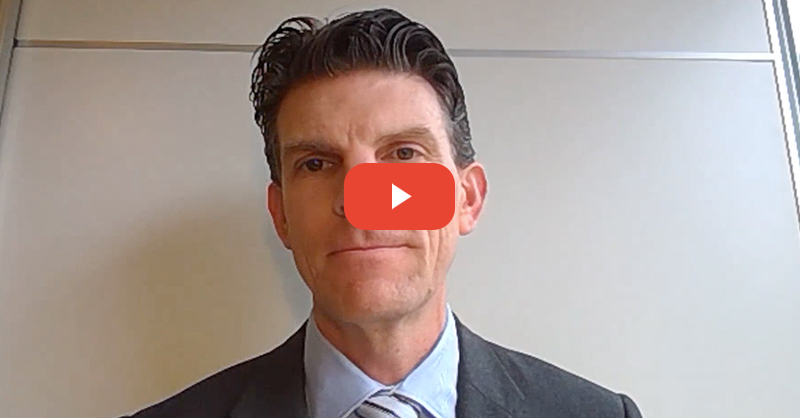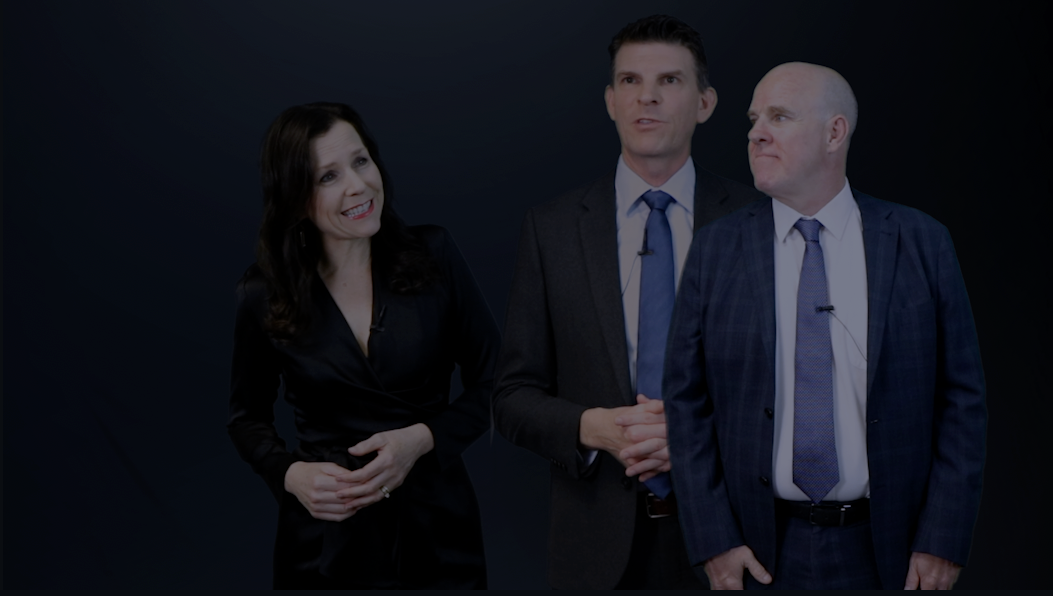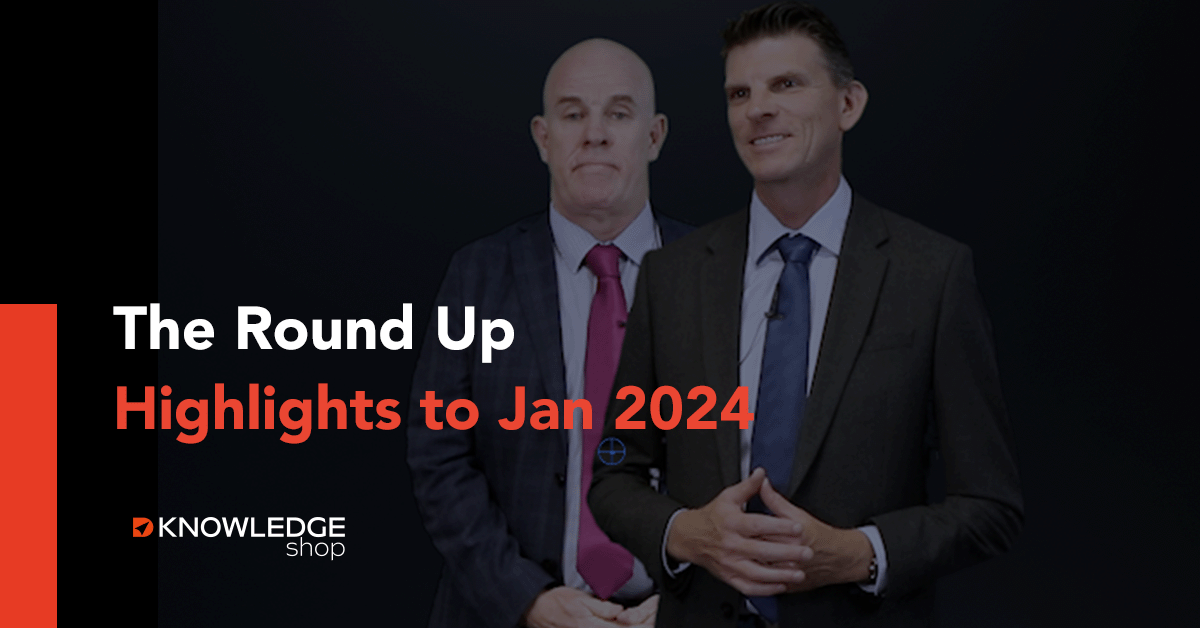April 2024 Round Up - Division 7A dilemmas
The ATO is cracking down on business owners who take money or use company resources for themselves and have launched a new education campaign to tackle common Division 7A problems.
Plus, the self-education deductions denied by the AAT for a dental technician studying to be a registered dentist - the nexus between how income is earned and self-education expenses is less forgiving than you might think.
Change is a constant for the profession. The Knowledge Shop membership can help you and your team keep ahead of change with an advisers' help desk, workpaper knowledge base, quarterly PD, and more - wherever you are and however you are working. Book in a time for a tour or call the Knowledge Shop team on 1300 378 950.
Inside this month Michael Carruthers (Tax Director), Matthew Tse (Tax Adviser) and Lisa Armstrong (MD) bring you:
ATO’s warning on common Division 7A mistakes
Reference: Accessing private company money or assets?
The ATO is warning that a series of common mistakes are being discovered in relation to Division 7A, which can apply when shareholders or their associates access money and assets from a private company.
Division 7A is a focus area of the ATO. If taxpayers fail to identify and deal with Division 7A issues appropriately, this can lead to harsh tax outcomes resulting in a deemed unfranked dividend in the hands of the shareholder or their associate.
While Division 7A contains some complex and highly technical provisions, the ATO has indicated that often the mistakes that are being identified relate to fundamental aspects of the rules.
One of common way of preventing a loan from a private company to a shareholder or their associate being treated as a deemed unfranked dividend in the year the loan is made is to ensure the loan is placed under complying loan terms by the relevant deadline. However, the ATO has been identifying situations where loan arrangements don’t meet the strict requirements contained in Division 7A.
In order for a loan to be subject to complying Division 7A terms there needs to be a written agreement which meets the following requirements:
- A minimum interest rate at least equal to the Division 7A benchmark rate; and
- A maximum term of 7 years (or in some cases 25 years if the loan is secured by a mortgage over real property).
Placing a loan under a complying Division 7A loan agreement will normally prevent the full loan balance from being treated as a deemed dividend. However, if the borrower doesn’t make the minimum annual loan repayments in a subsequent income year then this can trigger a deemed dividend for the shortfall in the repayments for that year. The ATO has identified that it is relatively common for errors to be made when making minimum repayments.
It is also important to remember that the use of private company assets by a shareholder or their associate can sometimes be treated as a payment for Division 7A purposes, which can trigger a deemed dividend if the shareholder or associate doesn’t pay market rates for the use of the asset. The ATO is finding that taxpayers often don’t realise that the use of private company assets can trigger Division 7A or they aren’t taking appropriate steps to prevent a deemed dividend from arising.
The low level of compliance with Division 7A has prompted the ATO to launch a series of webinars and articles to help educate practitioners and taxpayers on key aspects of the rules. However, this doesn’t mean that the ATO won’t continue to undertake reviews and audits looking for situations where Division 7A has been triggered. This is clearly an ATO focus area at the moment and practitioners should ensure that appropriate steps are being taken to identify potential Division 7A problems and that these are managed carefully.
Self-education deductions denied for a dental technician studying to be dentist
Reference: Ionita and Commissioner of Taxation (Taxation) [2024] AATA 808
The AAT in Ionita and Commissioner of Taxation [2024] AATA 808 held that the self-education costs of a dental technician in relation to undertaking exams to become a registered dentist were not deductible. This outcome was reached even though the taxpayer was already working in the dental industry.
The taxpayer originally qualified as a dentist in Romania before moving to Australia to work as a dental technician in or around 2013. In order to become a registered dentist in Australia, the taxpayer undertook an initial assessment and subsequent written and practical exams over a number of years which were facilitated by the Australian Dental Council of Australia.
The taxpayer sought to claim deductions for the costs of the various exams and assessments, as well as travel and accommodation costs that were incurred to undertake these exams and assessments.
The key issue considered by the AAT was whether the self-education activities undertaken by the taxpayer had a sufficient connection with her current income earning activities as a dental technician.
The taxpayer predominantly tried to argue that the duties and skills of a dental technician and dentist are similar. The taxpayer’s argument was that studying to become a registered dentist helped the taxpayer perform her current role as a dental technician more effectively.
To lend support to this argument, the taxpayer produced a letter from her employer stating that her skills and knowledge improved rapidly during her period of employment leading to pay increases well above inflation.
The AAT disagreed with the taxpayer. In particular, the AAT considered that the studies to become a registered dentist were not necessary to her role as a dental technician, did not improve her skills and knowledge in performing that role and otherwise also did not lead to an increase in her income as a dental technician.
The AAT reached this conclusion having regard to the following:
- The self-education was not required to maintain her skills as a dental technician as her employment contract and professional body did not require this study;
- Studying to become a registered dentist was not linked to an improvement in performing her role as dental technician because the job of a dentist and dental technician are fundamentally different. While a dentist’s duties involve patient treatment and care, a dental technician’s role involves working in a lab to create plaster and stone models, impression trays, refine and repair dentures, etc; and
- The taxpayer’s studies did not lead to increase to her income as a dental technician. While the AAT noted that her employer’s letter stated that the taxpayer’s salary had increased over the years, this could be due to other factors including the skills and experienced she gained while working over this period. In particular, the AAT did not find a link between completing the various assessments and exams to the timing of her pay increases.
The AAT ultimately considered that the taxpayer’s self-education was undertaken to obtain registration as a dentist. Since the taxpayer was not yet employed as a dentist and therefore the self-education was designed to put the taxpayer in a future position to earn income as a dentist, the AAT concluded that the exams costs were incurred ‘too soon’ to be deductible.
Practitioners should be aware that just because a client has commenced working in the general industry of study, this doesn’t necessarily mean that the self-education costs relating to the industry are deductible. This is especially if the self-education is being undertaken in order to commence a new role with different duties, responsibilities, etc.
While the ATO in TR 2024/3 states that it is relevant to consider whether the self-education activities are likely to lead to a promotion, it is also necessary to consider whether the promotion leads to a position that is materially different from the taxpayer’s current position. The ATO has also notes that the cost of initial qualifications to gain entry into a profession that do not increase the taxpayer’s ability to perform their current job may not be deductible because they are simply incurred ‘too soon’.
Important: This information is general information only and not intended to be financial product advice, investment advice, tax advice or legal advice and should not be relied upon as such. As this information is general in nature it may omit detail that could be significant to your particular circumstances. Scenarios, examples, and comparisons are shown for illustrative purposes only. Certain industry data used may have been obtained from research, surveys or studies conducted by third parties, including industry or general publications. Knowledge Shop has not independently verified any such data provided by third parties or industry or general publications. No representation or warranty, express or implied, is made as to its fairness, accuracy, correctness, completeness or adequacy. We recommend that individuals seek professional advice before making any financial decisions. This information is intended to assist you as part of your own advice to your client. Use of this information is your responsibility. To the maximum extent permitted by law, Knowledge Shop expressly disclaims all liabilities and responsibility in respect of any expenses, losses, damages or costs incurred by any recipient as a result of the use or reliance on the information including, without limitation, any liability arising from fault or negligence or otherwise. While all care has been taken to ensure the information is correct at the time of publishing, superannuation and tax legislation can change from time to time and Knowledge Shop Pty Ltd is not liable for any loss arising from reliance on this information, including reliance on information that is no longer current. Tax is only one consideration when making a financial decision.
Share this
You May Also Like
These Related Stories

June 2021 Round Up - Temporary Full Expensing clarified...mostly

Oct 2023 Round Up - Unpaid trust distributions are not Division 7A loans?


No Comments Yet
Let us know what you think